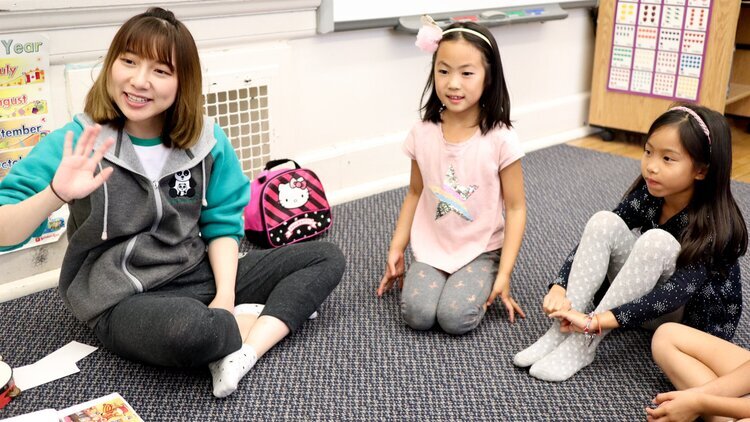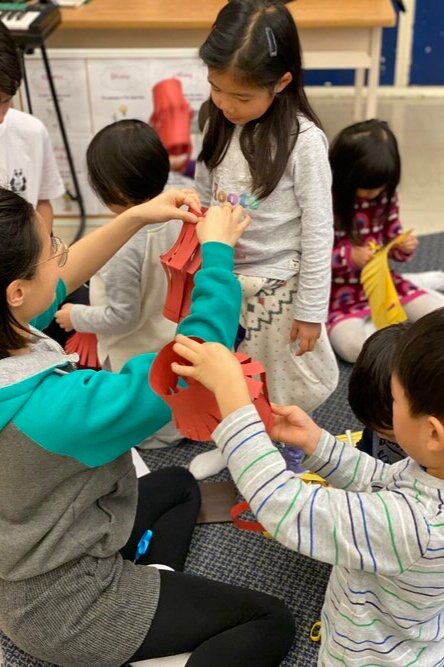Read If You Want Your Child to Learn a Heritage Language
Written by Yollanda Zhang
A study out of Stanford took the notion of “if you are good at something, you will have a positive attitude towards it and therefore be better at it” and turned it on its head. Instead, they wondered if a child’s attitude was reinforced in a positive way—in this study, it referred to their attitude toward math—could their skills in math improve?
The answer was yes. The study had 47 of their 240 subject kids, aged 7 to 10 do math while being scanned in an MRI. “As expected, kids who did well in math liked math more, both according to self reports and their parents, and kids who hated the subject did poorly. But the brain scans also turned up something much more fascinating. The images revealed that the hippocampus, a brain area linked with memory and learning, was significantly more active in kids with a positive attitude towards math. It appears it's not just that children like subjects they're good at. It's also that liking a subject helps students' brains actually work better.” (Source: ibid)
What does all of this have to do with learning heritage languages? The same principles of mindset can and should be applied. Attitude is everything. And parents are one of the single biggest influences on a child’s willingness and positivity towards learning languages.
The value in maintaining a link to your own heritage cannot be understated. It’s a connection to something greater than yourself, a piece of your history that bonds generations together.
Photo Courtesy of Panda Mandarin.
Children are not predisposed to carry any baggage about learning their heritage language, which is why starting young is essential. Children are far more adaptable than adults to learning a new language easily and seamlessly. Their brains are akin to sponges that can easily learn without being inhibited by any negative attitude.
Pressure is often applied on children to learn the heritage language of their families. This notion can come from tradition, or from grandparents or other family members, but for many of the adults, there is negative baggage that comes with this idea.
Sponsored by Union Capital Realty, Brokerage.
Parents who insist on their children learning a language while they themselves display a negative attitude towards it will find it difficult to encourage their children to learn the language, and the kids will more than likely give up at some point. A parent can speak their mother tongue and still hold a negative view towards it.
In the case of many Chinese parents in Canada for example, there are issues of intergenerational trauma as children of immigrants. There are often bad memories of hating Chinese school as children themselves. These individuals might go some ways to avoid even speaking their heritage language because they see the difficulties it can cause with fitting into a new community. In doing so, their own children could come to see their heritage language as something negative, something to be avoided – which will undermine any attempt to learn it.
Photo Courtesy of Panda Mandarin.
“Heritage languages are valuable connections to past, present and future.”
Projecting those attitudes onto their own children, whether consciously or not, creates a negative model for the kids, which will discourage their learning no matter how many ‘games’ are played to try and make the process fun.
Sponsored by Palettera.
Before you set up a plan to teach your kids their heritage language, you need to first recognize these negative feelings and find ways to deal with your own issues around your history with it so that you can model the growth mindset—which values effort over avoiding failure—that you want them to have. This will create a solid path to success for your kids and you will develop a healthier view of your own cultural background and identity in the process. Everybody wins in that scenario, for now and for the future.
Yollanda Zhang is the founder and the leader of Panda Mandarin, a Mandarin school for children and adults in mid-town Toronto. Panda Mandarin is unique in that it aims to make the language fun, engaging, and authentic.











